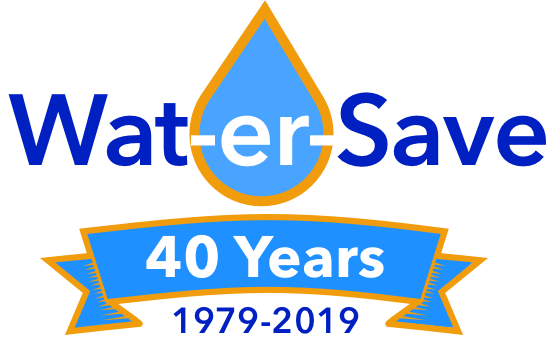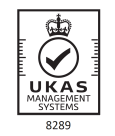Water Efficiency
The increasing pressure on water resources in the UK is having a detrimental impact on the water environment. It is important that we encourage more sustainable water use to maintain and improve the water environment and at the same time reduce operating costs.
Reduction in operating costs can be achieved on holiday parks using a number of water conservation tools.
Water audits
Water efficiency equipment – data logging, pressure management
Undertaking leakage detection and repair
It is in this article that we will be concentrating on water efficiency equipment, specifically data logging. We will be talking about other efficiency measures in future articles, so keep an eye out for those.
DATA LOGGING
Data-logging has become one of the vital tools for effective water conservation and we will be discussing this further below.
Data logging is an important part of the water management strategy to ensure long-term economic benefits by improved management of water use. You need to measure water to be able to manage it and an accurate data collection is key to managing water effectively. It also encourages more efficient and effective water use, whether you are a site manager monitoring the effects of water abstraction from a borehole or a holiday park owner trying to keep track of leakage occurring on their water distribution system.
The management of the water system across holiday parks is important to ensure protection of the environment and long term sustainability of the business. Holiday parks need to be proactive in managing their water usage through annual consumption targets and the introduction of a plethora of water saving measures including pressure reducing valves, rainwater harvesting systems and data loggers.
Today, one of the more popular methods of recording water readings is with a data logger. Data loggers are stand-alone box instruments that measure signals, convert them to digital data and, in this case, send the data in a SMS text message to a web server.
With the evolution of technology, new PC based software has been developed allowing the user to monitor their water consumption on a more detailed and accurate basis without the need to visit site.
Do I really need a data logger?
We know a large majority of the holiday park owners already have water management solutions and understand the need to monitor their water supplies more closely. This could be the maintenance staff taking weekly readings to identify any increases over the norm or the security staff taking meter readings during the early hours of the morning to try and catch any potential leakage at initial stages.
Alan Castledine, Commercial Director of Park Resorts commented that, “Water is liquid gold” where overheads are concerned and it is crucial to manage water consumption to contain costs and help the environment. Park Resorts has been using data- logging equipment across their sites for some years to achieve this objective. The close monitoring of every park’s water consumption through data logging the supply is crucial to the successful management of water costs. In most instances we know remotely that there is a leakage problem on a park even before the local management…
A data logger is an essential tool when undertaking water management. Once installed the data logger will undertake readings every 15 minutes 24 hours a day, 7 days a week. Most units have a lithium battery which is designed to last for 5 years un-maintained, giving the user the potential to review years’ worth of data at a click of a button.
Are they expensive?
When you think that water and sewerage can cost as much as £4.97 per cubic metre and just one dripping tap can waste as much as 2 cubic metres in a month. It is soon apparent just how costly excess water consumption is. This means that it doesn’t take long before data-loggers have made themselves invaluable. In some cases payback of the data logger has been under a month.
The most basic of units will be able to give the user index readings from the water meter so if the meter is in a deep chamber or water-logged then you won’t have to physically read your meter.
They will also show minimum consumption levels during the early hours of the morning allowing the user to spot the early signs of a water leak. It also allows office based administration staff the chance to monitor their water consumption without having to leave the office. This allows most data logger units to have a payback period of less than 12 months.
What are the advantages of using a data logger?
Using data-loggers to record data has a number of advantages over recording data manually:
Measurements are always taken at the right time. Unlike a person the computer will not forget to take a reading or take a reading too late or too early.
Mistakes are not made in reading the water meters. People can make errors. For example it is quite easy to misread a digit when your water meter is located in a remote location. Especially during the winter months when extra vigilance is needed to protect against burst water pipes.
Data-logging devices can be sent to places that people cannot easily get to. For example where meters are located off park and security staff cannot leave park to read the meters.
Graphs and tables of results can be produced automatically by the data-logging software.
The data logger will hold several years’ worth of data allowing the end user to predict norms and also allow them to predict future billing patterns.
Data loggers can be programmed to send high usage alarms to the end user by the means of a SMS text message or email. These alarms can be set from the hours of say 2am to 4am and warn of sudden increases over the pre-determined base level.
The success of newly implemented water efficiency measures can be easily tracked.
So what does this all mean to the caravan park owner? Can data logging make real changes to a holiday park with as little as for example 100 caravans/lodges or is data logging just for those parks with more than 300? We feel data logging is available to anyone wanting to manage their water supply effectively. No matter how small the amount of caravans you have on a caravan park, if you have a water supply buried underground there is always the potential for leakage to occur.
Data logging then becomes even more important to the smaller caravan park which potentially only gets billed bi-annually or even annually. A dripping tap can waste as much as 2,000 litres/month and an undiscovered water leak could cause a water bill to be in the tens of thousands of pounds. Just imagine the shock when the water bill arrives on the doorstep not for the budgeted amount of £5,000 but for £25,000!
It then becomes even more paramount that a park with 800 caravans manages their water supply even more closely as the potential for the water supply leaking is increased.
Wat-er-Save Services
Agriculture House
Acland Road
Dorchester DT1 1EF
(01305) 260151

